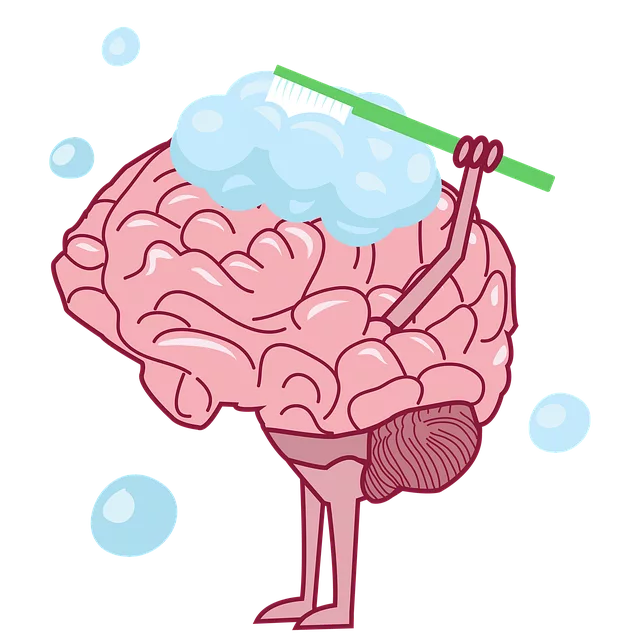TL;DR:
Kaiser Cognitive Behavioral Therapy (KCBT) is an effective treatment for Attention-Deficit/Hyperactivity Disorder (ADD/ADHD) in adults, focusing on modifying negative thought patterns and behaviors. Unlike medication, KCBT addresses underlying cognitive processes to improve attention control and impulse management. Through tailored workshops, individuals learn time management skills, enhance focus, and boost productivity. KCBT also manages comorbid conditions like anxiety and depression, and its techniques can be adapted for other mental health issues. By integrating CBT into daily routines through goal setting, time management, and stress reduction, individuals can experience significant improvements in concentration, organization, and overall well-being.
“Attention-Deficit/Hyperactivity Disorder (ADD/ADHD) is a neurodevelopmental condition affecting millions, yet effective treatment options remain elusive for many. This article explores Kaiser Cognitive Behavioral Therapy (Kaiser CBT) as a powerful tool in managing ADD/ADHD symptoms. We delve into the understanding of this disorder and how Kaiser CBT offers structured, evidence-based techniques to enhance focus, reduce impulsivity, and improve overall functioning. By integrating these strategies into daily routines, individuals with ADD/ADHD can achieve lasting results.”
- Understanding ADD/ADHD and the Role of Kaiser Cognitive Behavioral Therapy
- Key Techniques and Benefits of Kaiser CBT for ADD/ADHD Management
- Integrating Kaiser CBT into Daily Routines for Lasting Results
Understanding ADD/ADHD and the Role of Kaiser Cognitive Behavioral Therapy

ADD/ADHD, or Attention-Deficit/Hyperactivity Disorder, is a neurodevelopmental condition that affects both children and adults. It’s characterized by difficulties in paying attention, hyperactivity, and impulsivity, which can significantly impact daily functioning. While it was previously diagnosed mostly in children, increasing awareness has led to more recognition of its persistence into adulthood.
Kaiser Cognitive Behavioral Therapy (KCBT) is a specialized form of therapy that has shown great promise in managing ADD/ADHD symptoms. KCBT focuses on identifying and changing negative thought patterns and behaviors associated with the disorder. By teaching individuals coping strategies, it empowers them to gain better control over their attention and impulses. Unlike medication, which often treats the symptoms, KCBT addresses the underlying cognitive processes, offering a more holistic approach. Moreover, adult CBT workshops can provide tailored support for adults living with ADD/ADHD, helping them develop effective time management skills, improve focus, and enhance overall productivity. This therapy is also beneficial in addressing comorbid conditions like anxiety and depression that often accompany ADD/ADHD, ensuring comprehensive treatment. Additionally, KCBT has been explored in the context of other issues such as cbt therapy for trauma and body image CBT, demonstrating its versatility in meeting diverse mental health needs.
Key Techniques and Benefits of Kaiser CBT for ADD/ADHD Management

The Kaiser Cognitive Behavioral Therapy (CBT) stands out as a highly effective approach for managing ADD/ADHD, offering individuals valuable tools to enhance focus and productivity. This therapeutic method focuses on identifying and modifying negative thought patterns and behaviors, which are often at the root of attention-related challenges. By teaching clients specific strategies, CBT empowers them to improve impulse control, increase organization, and boost self-regulation—skills crucial for daily functioning.
One of the key strengths of Kaiser CBT is its ability to tailor interventions to individual needs. Trained therapists utilize evidence-based techniques, such as trauma-focused cognitive behavioral therapy, to address underlying issues that may contribute to ADHD symptoms. Moreover, adult CBT programs and workshops designed specifically for ADD/ADHD can significantly improve coping mechanisms and overall quality of life. Through structured exercises and supportive environments, individuals learn to navigate their symptoms effectively, fostering better concentration, increased productivity, and improved relationships.
Integrating Kaiser CBT into Daily Routines for Lasting Results

Integrating Kaiser Cognitive Behavioral Therapy (CBT) into daily routines is key to achieving lasting results for ADD/ADHD management. CBT focuses on identifying and changing negative thought patterns and behaviors, empowering individuals to take control of their symptoms. By learning coping strategies tailored to individual needs, patients can effectively navigate challenges that arise in daily life, from organizing tasks to managing impulsivity. This personalized approach ensures that treatment remains relevant and applicable long after therapy sessions conclude.
Regular practice is vital for the success of CBT integration. Incorporating techniques like goal setting, time management, and stress reduction into everyday activities reinforces positive changes. Additionally, engaging in CBT for relationships or social anxiety groups can further enhance benefits, providing a supportive network that fosters understanding and encourages continued growth. Through consistent effort and tailored strategies, individuals with ADD/ADHD can experience significant improvements in focus, organization, and overall well-being.
In conclusion, Kaiser Cognitive Behavioral Therapy (KCBT) emerges as a powerful and effective treatment approach for ADD/ADHD, offering a holistic solution that targets core symptoms and enhances overall well-being. By integrating KCBT into daily routines, individuals can achieve lasting improvements in focus, organization, and impulse control, leading to better academic, professional, and social outcomes. This evidence-based method not only empowers individuals with ADHD but also provides them with valuable coping strategies for a more fulfilling life.






